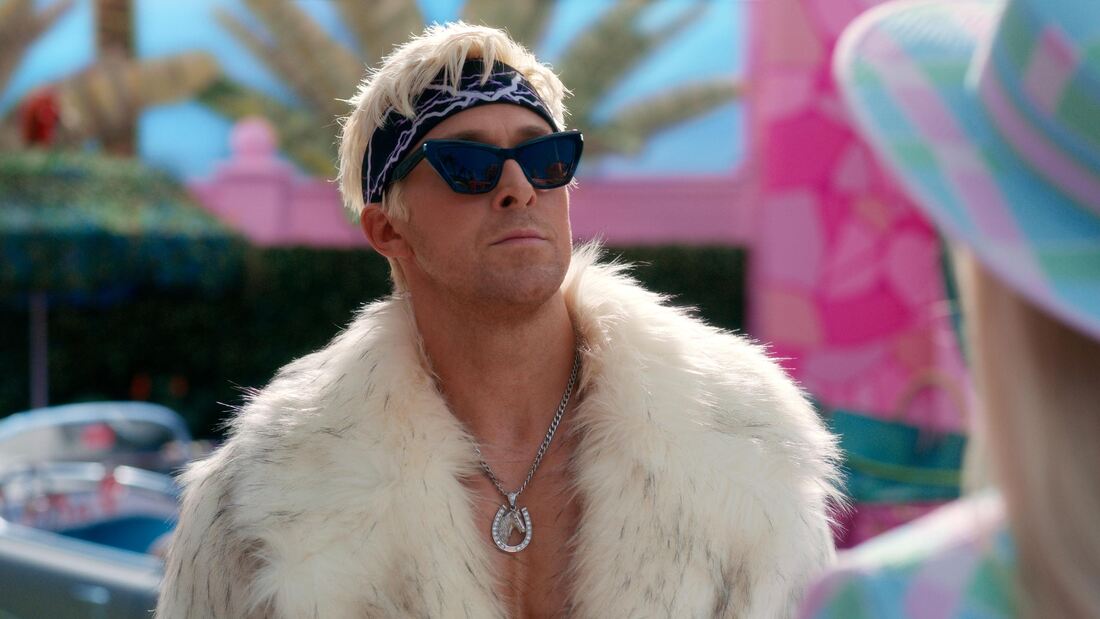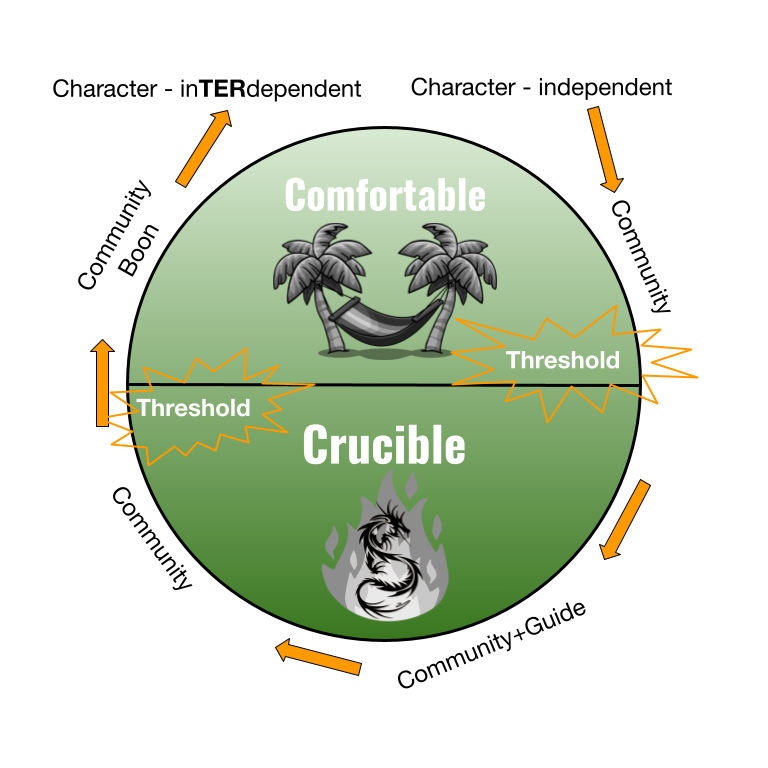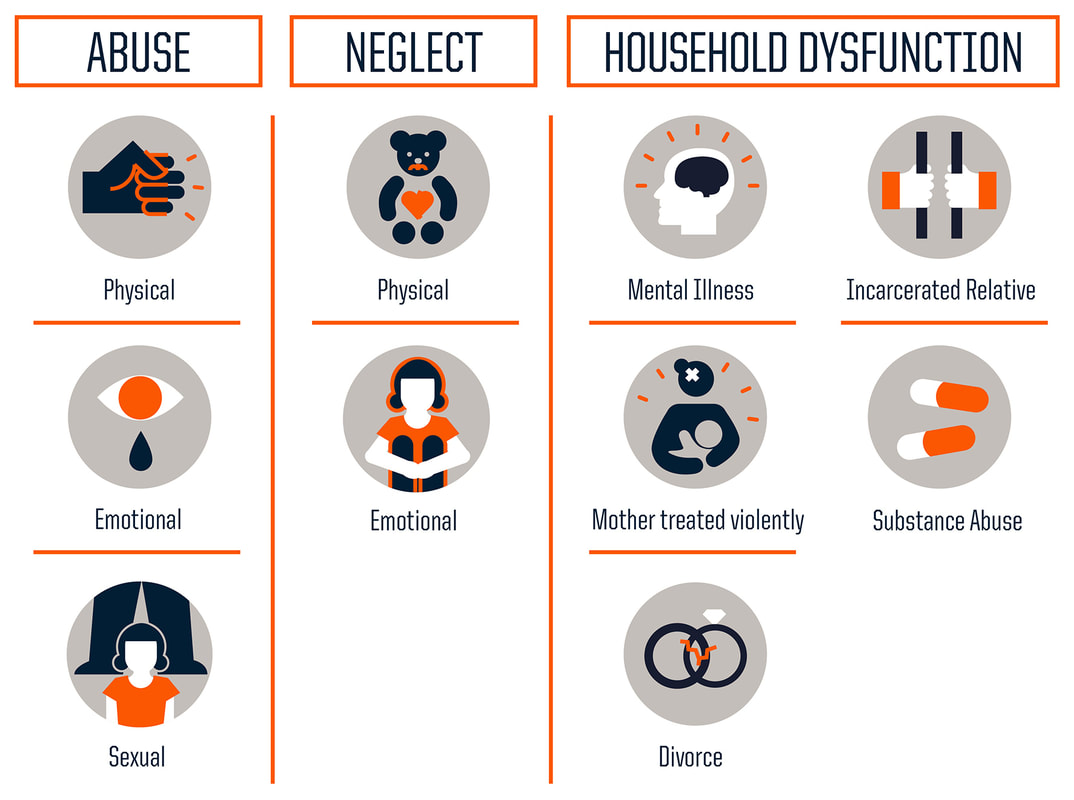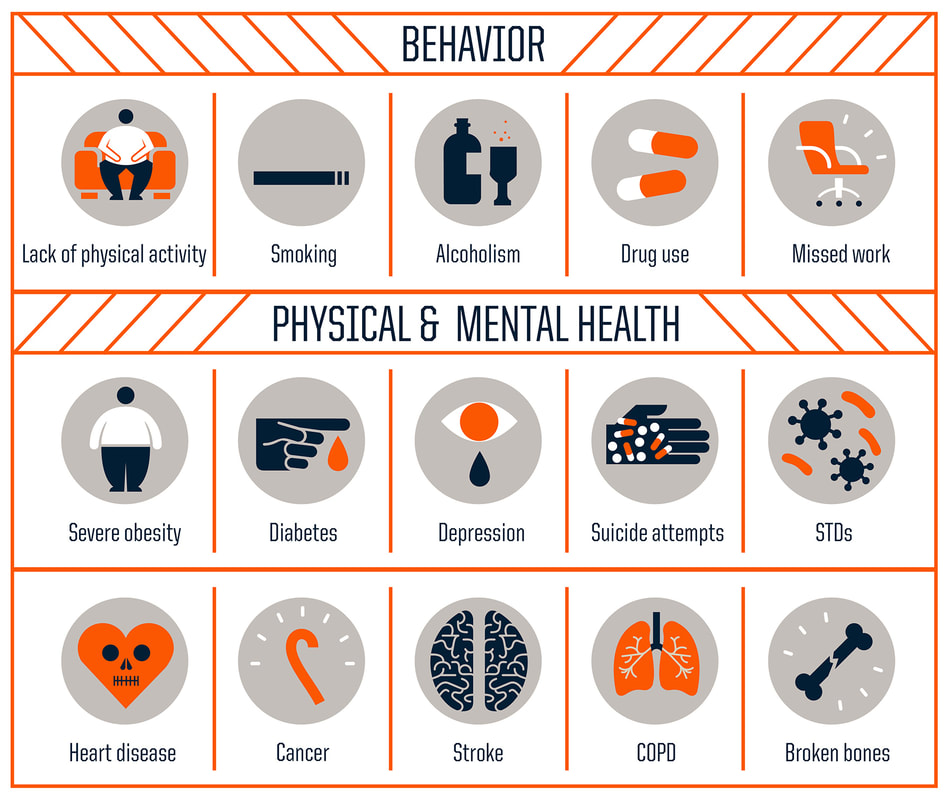|
When we fight amongst ourselves to prove our individual stories, within which we hold our understanding of our God’s supremacy and authority and power and perfection, we are mocking a generous God’s story of love, universal invitation, and ultimate, timeless personal sacrifice. The trauma of Jesus as God is healed when our human compassion connects with his. The love that flows from that union powers the healing of our communities, cultures, ecosystems, and our planet as one interconnected, interdependent story - where everyone belongs and the hierarchy of power is transformed into a sacred family into which everyone and everything is already adopted and loved.
The value of deconstructing faith and church is like taking apart a falling-down barn built with old-growth lumber. We get rid of the broken, rotted parts and reorganize. We ooh and ah when we find the solid beams and the well-designed elements. Then we take all that is healthy and lasting and build something by blending our evolved understanding of construction technology with timeless craftsmanship. The deconstruction is to find all the healthy stuff, separate it from the unhealthy and reconstruct something better. It is a repeating cycle. There is a lot of deconstruction embedded in the message of Jesus that I think we missed. His invitation to repent was about leaving outdated and unhelpful human ways behind. But he was not pointing to a new way. He was pointing to and endlessly explaining THE Way that had been the way the whole time. The repeating patterns we keep discovering with our microscopes, our brains, hearts, and bodies, and our telescopes are evidence that there is a timeless, boundless way. Divisive fighting amongst ourselves about ANYTHING is evidence that we have turned away from the larger narrative.
0 Comments
When we center our story in the universe, it seems to incline us to a defensive posture. If I live in one separate, independent story where my values, my wants and needs, my perspective, and how I perceive truth are central (this reminds me of the Christian illustration of the throne in the middle of my heart), then any perspective I encounter in which I am not the center is at least in conflict with mine and at worst an existential threat.
The irony is that as the protagonist of God’s story, God’s greatest want is relationship with us. It appears from the evidence that their desire has always been to draw us into their story. To call us, friend, brother, sister, partner (bride), son, daughter, and neighbor. The story of creation, the flood, Babel, Jonah, Abraham, Moses, David, and all the prophets centers humans as the greatest value. They point to God's deep desire to live in one unified universal story with us. We stupidly, selfishly, and continually resist. And then, using the deepest magic in the universe, God became one of us. This was not the first time he became matter. “The Word” in the beginning was flesh - how all things were made. But this time, God showed up as a vulnerable human. I suspect it was not to illustrate perfection, “I’ll show ya how it’s done,” but to help us understand God’s inexplicable desire and the truth of our reality. Manifested in the body, mind, and heart of Jesus was the central truth that we are at the center of God's story and they want us at the center of theirs. Jesus was God's proof and the Christ mystery is, as Paul said, that what God offers (called the Gospel by Christians) is already reality for everyone. Caption Please let me say once again, I do not write with authority but with wonder and curiosity. I have experienced and observed and I spent my first 40+ years in the Christian Church. So, it’s what I know. This story may be mythical and it may be true. Mythical and true are not necessarily opposites. I think it’s useful either way unless it is used to oppress. I am not claiming any exclusivity for the Christian institution and I’m quite upset about the condition it is in now. My interest is in the concept of belonging as seen in the patterns of the universe and how it applies to humans in relationship with each other, ourselves, the world, and probably with God. Deconstruction is only one part of a larger process. This is some of mine. I hope it is helpful, inspiring, and encouraging. Ephebiphobia The fear or loathing of teenagers. The inaccurate, exaggerated, and sensational characterization of young people. I saw another post recently about what’s wrong with kids these days. It was followed by typical responses. No respect. No discipline. No work ethic. Entitled. Smartphones. Parents. Teachers. Schools. Blah. Blah. Blah. We. Are. Missing. The. Point. Kids these days are the canary in our mine shaft. They are pointing to our problems - absorbing what is in the mineshaft and demonstrating to us in real-time whether it is good for them (and us) or not. If they are acting, talking, or thinking in unhealthy ways - it is an indication that WE have created an unhealthy environment. We simply cannot blame them. They have not had enough time to become responsible for their development. “Seen not heard” doesn’t work for the future of our society. In order for continued societal improvement, youth need to experience belonging at day zero, not after they “get a job.” All of them. They have been seeing and hearing, that if you disagree with someone - villify them. Treat them like they don’t belong because they look, act, or believe differently than you do. Kids with undeveloped prefrontal cortexes already know that there is something wrong with dehumanizing and violence. But they will follow suit if the adults they are exposed to model it for them. Then when their prefrontal cortexes start developing (around age 12), the cognitive dissonance gets loud and they will separate themselves from us. So kids don’t trust adults. They don’t respect us. They don’t want to listen to us. They have developed their own culture, language, and norms to stay safe in the mineshaft. What will change this is belonging that includes kids. Their unique identities involved in generative collaboration to change the mineshaft. Caption
Before you start yelling at me, I am not saying that kids do not need to learn to be responsible for their own behavior. I’m saying they learn by watching us. I am also not saying that parents, teachers, and schools are not contributors. What I am saying is that our kids are the responsibility of our whole community. I am in relationships with parents, teachers, and schools. They are too alone. Too blamed. And too much of the time, the ephebiphobia I see is coming from people who see themselves as outside the problem. They are not taking responsibility for their own contributions to a society that produces sick canaries. If you are not going to invest directly into kids with a focus on mutual respect and mutual solutions; If you are not going to support schools with generous participation and encouragement; If you are not going to see teachers as heroes… then you need to be grateful to those who are. You are not helping anything or anyone, including yourself, with blaming and complaining that is not backed up by your own involvement and sacrifice. Either do something generative or put your energy into appreciating those who are. I am working to accept permission to be in relationship with my own ruminations and emotions, with other people, with the universe, and with God without being restricted by the need to fit in. This is not to say I am avoiding the bi-directional sharing of thought and emotion with other people. The opposite. I am looking for people and experiences who are drawn to grow beyond our supposed physical and spiritual limitations. Hence, I post.
The placement of those damnable restrictions may be the primary error of our cultural, political, economic, and religious institutions. It is a crime against humanity and all that exists. Thus, the first recorded invitation of Jesus was to adopt a new paradigm (repent - do a 180) because the whole universe is in you (kingdom of God), not in a building or an institution. Pretty sure most eastern religions have similar sentiments. The radical implication is that the consciousness of humans is where God is - and vice versa. This, I believe is the mythological dividing line. Absolute belonging is the dividing line. Therefore, if thought, emotion, word, and action contribute to belonging then they are in line with the ultimate universal principles of this paradigm. If they require a restriction of the essential self; if they make a person hide or limit who they really are, if they devalue, if they do not contribute to the generative and equitable resourcing of all kinds of people and the environment - then they are not contributing to the structure of belonging that is both us and the container we exist in. We all belong. We always have belonged. Regardless and in spite of our effort to fit in. I saw the Barbie movie yesterday and I agree with my wife and daughter - a masterpiece with an important message. Far more valuable as a social commentary for today’s participants in what is actually going on than another white savior drama. I’m not sure whether the key protagonist in this movie is the angsty and enlightened teenager, the ordinary whistful mom, the beautiful old lady on the bench, Ruth Handler, or Barbie herself - or someone/something else I’m missing entirely. And for that matter, who is the antagonist and is there a villain? The adversity is beautifully complex and never allowed an oversimplified narrative - at least how I experienced it. The patriarchy is the conundrum - the oppression of women that has insidiously infected cultures, reducing men to Ken’s with trucks, CEO’s with implausible visions (tickle but don’t hug), or invisible Allans. I resonate with the awkward, painful transformation to knowing - but as a beginning rather than a finished story. So far, I’m left with the strong suspicion that I haven’t gotten it yet. At least not most of it.
But one thing was clear-ish. I am Ken. If God is God - an omnipresent, omniscient, and omnipotent interconnected us, then wouldn’t the story they author be authoritative regardless of the imperfection of the retelling by humans? Or rather, couldn’t God somehow account for the imperfections in their perfection - including in their story? If it is the actual, real, true story then our soul will tell us when we encounter the truth of it. When we share a meal or music or the moments of celebrating birth, death, and love - our hearts tell us - this is the story of life. This is where meaning meets us.
If God is relationship and we can resist the busy and the temptation to see only badness in the mundane and profane and goodness only in the glitter and glamour, we can stay connected to the connections we co-create in our interactions with each other interacting with God in God’s story. Maybe this is the mystical experience that illuminates the words of the Word for us. And if each one of us is somehow a non-dual extension of both God’s body and spirit or humanity and divinity, then why do we worry among ourselves about the incorrectness of one individual's story? Why do we need to “get it right” individually in order to protect the Story? Each of our stories is a reflection of the whole story. It contains truth by looking at it straight on or from behind. The chaos of all those intermingled stories is the source of emergence. The sacred truth that is the ground of our being some call God. It cannot be resisted in any way that reduces it. It can only be either participated in to expand our wholeness or resisted to diminish our experience of life. Is this scary or reassuring? The trauma/adversity experience shows up in every story. It is the context for the transformation to more life or more death. In Joseph Campbell’s authoritative Monomyth, sometimes called the Hero’s Journey, most of the elements of myth (story) are in the dark, the unconscious, and the life-threatening. They are rife with fear, doubt, threat, temptation, conflict, and sacrifice. The protagonist transcends independence and becomes interdependent - with a boon to bestow upon their fellow humans. Every other part of the story is either heading toward or coming out of Mordor, the threat of Empire, the fight with Cobra Kai, the barbarian horde, pirates, the wilderness, cancer, the Matrix, or zombies. It is a crucible. The character’s essence is revealed, demonstrated, tested, and refined. And they can never do it alone. There is always a small community of characters, including a guide (Gandalf, Yoda, Mr. Miyagi, Merlin, Flint, Rafiki, the doctor(s), Morpheus, or your Zombie Survival Guide). This community and the guide give clarity and courage. They share the burden until the character absorbs enough of their strength to emerge as their transcendent self. Character - wants to have, do, or be something (that they think gets them belonging) Crucible - the threat/obstacle to their want AND the transformational experience Community - the other characters in the story, including a guide Change - the alteration from independent to interdependent, with a boon for community These are the ingredients of a story. You can see them in any movie or book that keeps you engaged. And they are in your story. You can use them as a framework for sharing stories that reveal the essential you without even knowing what you are describing. What is your favorite book or movie and how do the elements of story show up? Caption
The whole hassle, the fascination, and the necessity of deconstruction (a currently popular version of our ongoing exploration of and hunt for truth and meaning), at least for me, hingeson belonging and the the legitimacy of story as our framework for building it. Story is the perspective of experience. Somehow, God’s perspective, all of humanity’s perspective for all of history, and the perspective each of us is having at every moment are converging and either cooperating or clashing. How can we fit it all together - in our shared story. Trigger warning. I want to offer a short primer on trauma by way of the Adverse Childhood Experiences Study (ACEs). Using it carelessly can cause unnecessary emotional pain. The ACE study is only one part of the story of trauma. For the full story, we need to look at research around resilience and the role of adversity in becoming whole as individuals and communities. Emmy Werner’s Longitudinal study, the recent book, “The Good Life” summarizing findings of the 84-year Harvard Study of Adult Development, many other research studies, and many of our stories say that trauma does not need to have the last word and it is not more powerful than our ability to heal and take individual and shared ownership of the adversity in our lives. In the mid-80s Dr. Vincent Felitti encountered a patient named Patti at his medical weight loss clinic. In 51 weeks, she lost over 300 lbs. Then in three weeks, she regained 37 lbs. After investigating, they discovered she was sleep-eating as a response to a sexual advance from a co-worker. Patti was a survivor of child sexual abuse and unconsciously used her weight as a way of protecting herself against predators. Her “problem” was a solution. Felitti expressed shock that he had not heard of such a thing in his medical training. He surveyed the rest of his clients and found that 80% connected their weight to childhood adversity.
Felitti then presented at a Center for Disease Control and Prevention conference where his findings were not well received. That evening at the speaker's dinner, he sat next to a CDCP muckety muck who suggested they redo the research with a bigger sample group. They ended up collaborating with a Kaiser clinic and collecting 17,421 surveys. It is now known as the Adverse Childhood Experiences Study (ACEs). There were ten primary questions on the survey about abuse, neglect, and family dysfunction - all related to broken belonging in the first 18 years of life. The results of the study show that, due to the effect of our relational experiences on brain development, nearly everyone has trauma in their stories. Some more than others. This trauma, contained in relational experiences, literally builds the neural pathways that contain our beliefs about ourselves, the security of our relational attachments, our safety in the world, our innate value, and how to connect. Our relationships build our brains. How we experience belonging is built. We do not decide it ourselves - especially when we are children. The research also connected relational trauma to a myriad of negative outcomes (in addition to obesity) such as depression, addiction, disease, employment insecurity, academic failure, and relational dysfunction. What it does not demonstrate is the number of people with adversity who, in the context of a healing community, turned their trauma into strength. We can’t avoid trauma - it happens to everyone. That’s why healing relationships are so vital. It is where and how we heal. And it is where the strength that adversity can produce finds its most powerful expression. It is also why blame, shame, and separation are further trauma rather than a solution. Invitation to belong is our access to generative healing and human progress. I’m returning to the fun-filled topic of deconstruction (purposeful unlearning of values, principles, thinking, feeling, and behaviors that separate, isolate, and reduce ourselves, each other, and our relationship to the bigger story). By my way of thinking, deconstructing has to be connected to building something. Otherwise, rubble is trash instead of building material. It is regenerative and healing to come together and pick up pieces curiously. As an isolated individual, I have access to only one historical perspective and I, in no way, make claims to its exclusive wisdom. I was a bible studying, church-going, heaven bound christian capitalist, youth pastor, elder, teacher, and participant in the patriarchy. Not one piece of that story is left as it was 20 years ago. Some are completely torn apart but it is all in a new story. I respect the bible. I have faith. I suspect there is a God who is much different and cooler than I previously imagined. I do not lead or participate in religion in a way that is at all similar to my past participation. I think patriarchal systems have done unimaginable damage to women, men, communities, and cultures. I’m trying to avoid hubris and my tendency to get preachy. Both are in defense of my own egoic insecurities. I’m inviting you to a collaboration where we build the kind of real belonging where everyone and every thing belongs - to believe it is possible and be curious on the way there. If you read this far, and sense this is possible - you are feeling the truth that you already belong. I want to heartily resist blaming individual people for the misunderstandings of the church. I know pastors, elders, and leaders who, at the deepest level of their awareness want to love, care for, and guide helpfully. I was one of them. It is also not helpful to blame a particular group of people. Blame gets useful when it is shared and translated into a regenerative effort. When we recognize that what is wrong with what our religion has become came from the complex interplay of philosophical, economic, political, psychological, religious, and even biological influences over many generations that we have all contributed to, we can start changing. I do not want to take anything away from the pain. Some of it is really devastating. From misdirection to deep disillusionment to really heinous abuse of all kinds - the church structure has hurt people and not helped heal them well in far too many cases. For my part in that, and it is both specific and general - I thought, felt, did, and taught things that did damage and helped build a system that did damage - I am sorry. I regret that so much of what I thought was helpful was in fact harmful. As my personal and social experiences, awareness, perspectives, and willingness to explore outside the confines of a (mostly) man-stunted point of view have expanded, I am excited. In spite of my regrets, wounds and anger, I am excited to find that God is cooler, science is a useful and self-correcting partner, my old enemies (gay people, Buddhists, people who sleep in on Sundays, etc.) are wonderful friends and life-givers, it is good and safe to be my real self, eternity is not a threat, everything is connected and self-organizing, and our trauma fits into the scope of the story. Some key helpful phrases: “I think,” “in my opinion,” “the way I see it,” “what I’m wondering is,” “what do you mean by?” “how do you experience?” “thank you for sharing”
If you are feeling attacked or defensive even though no one is talking to or about you specifically, consider considering a bit from a different perspective if you are going to respond. And if you don’t have anything that builds up, encourages, or heals - consider that you don’t need to offer, you need to take. And it’s ok to ask for what you need to be seen, built up, encouraged, and healed. You belong just as much as anyone else. I grew up in a narrative that said I was a sinner and I needed a savior. In my religion, that was Jesus. He saved me personally and individually and as long as I didn’t sin too much I could stay saved. The pervasive, saturating message that so many of us received was that we were worthless, corrupt, and without the ability to be or produce any good thing.
In a much better story, according to every version of the bible I’ve read, humans were crafted lovingly by God and called “very good.” “Let us make (hu)man in our image.” This is our essential identity. A very good representation and expression of a God who is an us - an interdependent community. Literally and mythically, our work is not fighting against our independent corrupt nature, but embracing our sacred, interdependent essential nature. To become whole and integrated with ourselves and with each other. Like God. I talk to so many men, young and old, who feel like the not-yet-hero in a scared little boy’s story because they still can’t “do it” right. They are soul soaked by the message of their badness and their inability to do or be anything else. It is a damaging, debilitating, and false message. We can be good because that is our essential nature. In God’s story, we are meant to operate in community. Two or more it says. In a curious, empathetic, non-judgemental, reverent, and generative community, we can escape the echo chamber of our minds that says we are bad and incapable of anything else. We can live in a magical, woven connectedness that awakens our true selves and sets us free from the bondage of brokenness when we spend our energy giving in to our goodness instead of resisting our badness. |
Curtis MillerI write in a geeky, sciency, hopefully poetic way about belonging, storytelling, community building, deconstruction and construction, Archives
June 2024
Categories
All
|
Proudly powered by Weebly





 RSS Feed
RSS Feed